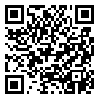BibTeX | RIS | EndNote | Medlars | ProCite | Reference Manager | RefWorks
Send citation to:
URL: http://hayat.tums.ac.ir/article-1-136-en.html
Background & Aim: While patient education promotes compliance to treatment and self-care ability, short hospital length of stay, anxiety, illness, and sleep disorders can interfere with this approach. It is not clear how realistic is to learn during the short hospitalization period, from nurses' and patients' perspectives. This study aimed to compare perspectives of patients and nurses on the reality of learning cardiac heart failure educational content in Shahid Rajaee heart hospital.
Methods & Materials: In this cross-sectional study, two hundred and fifty one patients and 181 nurses were selected using convenience sampling. Data were collected using the reality part of CHFPLNI and were analyzed in SPSS-11.
Results: Most of the patients were male (82.4%) most of the nurses were female (85.6%). The mean ages of patients and nurses were 55.18 and 35.15, respectively. The mean hospitalization period was 4.26 days and the mean duration of heart failure was 10.70 years. The majority of nurses had not participated in advanced preparation courses. Patients and nurses had agreement on the reality of medication learning. Patients rated medication (P<0.001), diet information (P<0.001), other information (P<0.001) and the total scale (P<0.001) as more realistic than the nurses did. Female nurses (P=0.012) and nurses with advanced preparation (P<0.001) perceived learning needs as more realistic than the other nurses.
Conclusion: Regarding discordance between patients' and nurses' perspectives on the reality of learning, nurses may postpone to implement educational program. Patients' perspectives should be considered in the establishment of heart failure educational programs.
| Rights and permissions | |
 |
This work is licensed under a Creative Commons Attribution-NonCommercial 4.0 International License. |





